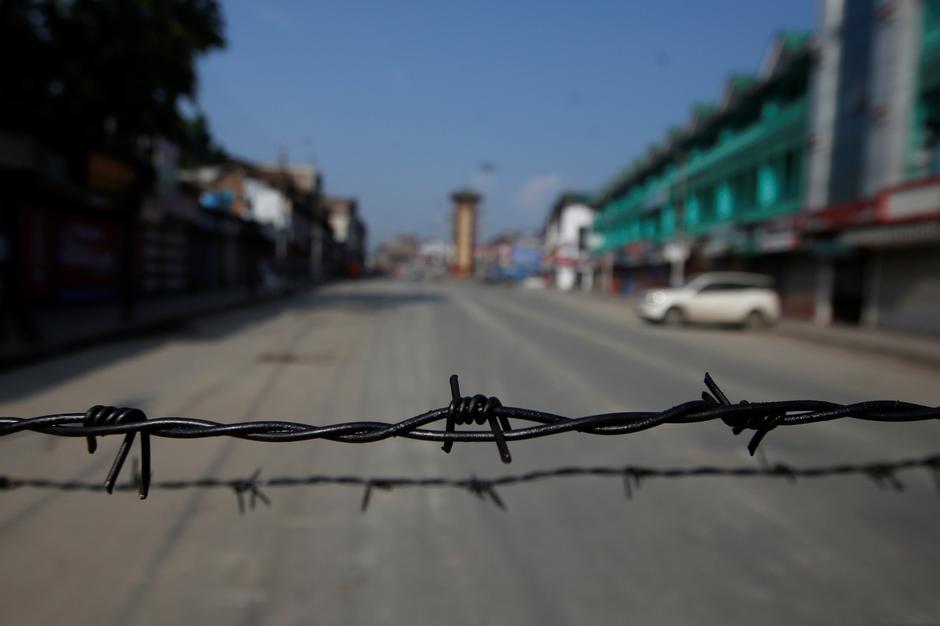
It has been more than 70 days since the clampdown in IOK but the ghosts that haunt Kashmir have been repressed for over 70 years. Traumatic inscriptions that exude from the situation can be witnessed from the lugubrious lines of a Kashmiri poet: “I am being rowed through Paradise on a river of Hell”, or through a student’s despairing attempt to contact her family from Turkey: “It has been 11 days and 10 nights and I have no idea how my mother, my brother, and my jailed father are doing”. Amidst wide-scale national tensions, the world has become a hotbed where the possibility of a radically contingent event has emerged. There is an immediate need to capture and preserve experiential evidence, in all forms, for the sake of historicity. The idea of an event, as we know it, has been completely revolutionised and we are, perhaps, at the precipice of one.
The event here does not refer to specific concatenated instances played out through linear time; rather it refers to something that is sui generis. It is evident that social constructs, if not completely, are to a great extent, a product of the mind — that is to say that organisations, societies, and nations are “imagined” by the human psyche in an attempt to form some sort of a collective whole. Even though these constructs cannot segregate themselves from the psyche, they do not originate from within it either. Rather, both social and physic realities are quasi-causally meshed together i.e. one changes the other and vice versa to a point where multiple new openings are precipitated. Through this understanding, one can trace the parallel between trauma (psychic) and event (social) as openings that suspend the past, halt the present and proclaim a novel future. We may perhaps describe this new kind of Event — incorporation and in turn the reconciliation of the psychic with the social — as an uncontrolled eruption in excess, of the collective trauma. It ruptures the existing socio-political dynamisms and appearances of normality to unfold new representations of truths, subjects, and systems. It is this rupture — a spurt of intensity, a spike in the graph, an anomaly — that creates, in its aftermath, a void (an emptiness that is itself the emergence of the infinite), which is then filled anew (where this emergence is actualised into a transfinite form).
If one is to glance at the global socio-political landscape at the moment, it is difficult to ignore the occurrences of sporadic resistance across the world. It seems that the spectre of Marx is all the more alive than we care to believe and this sudden hostility towards hegemonic power is proof of what he would call the “underclass resentment”.
“Our house is on fire, I am here to say our house is on fire”, said 16-year-old Greta at the 2019 World Economic Forum. This chilling proclamation is not just the fear of a young child but rather the inscription of the trauma caused by the existing geo-political reality — a reality plagued with ecological catastrophe and economic crisis. “Fire” no longer remains a puerile metaphor but the actual condition that we are living in. Resistance movements and protests have become increasingly rampant, social and class divide is amplifying, an extinction event is looming over us and the hunger crisis is worsening while those in power move towards coercive means of monetary hegemony. Such a chaotic atmosphere foreshadows an upcoming eruption. It is here that expression becomes increasingly necessary and all the more dangerous. One can already feel the socio-political plane trembling.
Published in The Express Tribune, October 23rd, 2019.
Like Opinion & Editorial on Facebook, follow @ETOpEd on Twitter to receive all updates on all our daily pieces.
1718870162-0/BeFunky-collage-(60)1718870162-0-405x300.webp)
1730504285-0/Martha-(1)1730504285-0-165x106.webp)











COMMENTS
Comments are moderated and generally will be posted if they are on-topic and not abusive.
For more information, please see our Comments FAQ